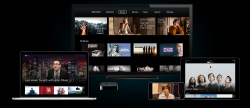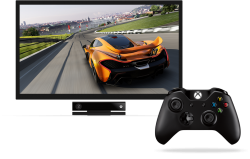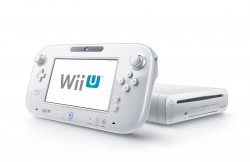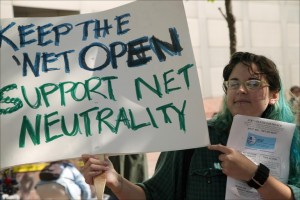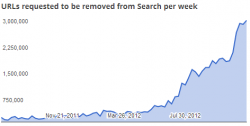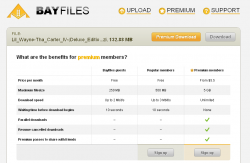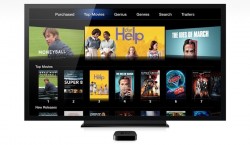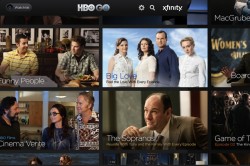A nicely rounded WNR this week, with a little bit of everything included, from copyright stuff, to gaming, to 4K Blu-ray. Also a shout out to our new contributor Nick Harris (here he is on Twitter) – Nick will be helping me write a couple of news stories on Digital Digest and Streambly. Welcome to the team Nick!
I’m still looking for more contributors to help me find and write news stories. If you like the topics covered by this WNR and have an interest in writing (no experience needed), please contact me (use the admin/Sean email address).
Alright, the news stuff.
![]()
While the first four episodes of the new Game of Thrones season has thus far avoided the unwanted distinction of breaking new piracy records, episode five, the first one that wasn’t leaked before the season even began, unfortunately could not escape the inevitable.
While most of the blame will go to the no good thieving pirates, especially now that HBO has given in and made available their standalone HBO Now product, HBO themselves are not without blame for this ongoing piracy crisis. The HBO Now app, based on ratings and reviews on the Apple App Store, is far from perfect and HBO’s poor track record with streaming goes back to even before HBO Now was launched. Those that used HBO Go, the company’s cable-account tied streaming service, will be familiar with the usual Game of Thrones rush, where HBO’s infrastructures fails to handle the demand of thousands of users all trying to stream the latest episode. On this front at least, HBO’s product falls short when compared to competitors like Netflix and Amazon.
And then there’s the price of HBO Now – $15 per month is very decent compared to the previous cable-tied arrangement, but it’s not when compared to the likes of Netflix. Considering that almost all users are there just to watch Game of Thrones, $15 a month for mainly just one show doesn’t sound like the greatest value.
So if HBO is serious about fighting piracy, then there are many other things they can do before playing the blame game.
Not living in a part of the world that HBO considers worthy of their presence, I’m not quite sure if their PC player uses HTML5. If they do already, or if they will eventually move in that direction (most likely), then the news that Firefox 38 now supports HTML5 DRM will be bittersweet news for subscribers of HBO Now that uses Firefox. This is because the latest version of Firefox has finally and reluctantly added Encrypted Media Extension (EME) support, which enables HTML5 playback of protected content from providers like Netflix, but also now means the open source browser now includes closed source DRM,
I say reluctantly because there’s a lot of complications involved with adding closed source “black box” code into an open source project like Firefox, even outside of licensing issues. Security, for example, is harder to verify if nobody can check the code for unintended bugs or intended spying. Firefox, for their part, has made a big effort to calm users of these fears, by providing a sandboxed environment for the EME, and also providing an EME-free version of Firefox for those that are concerned-bordering-on-paranoid (users can also disable or uninstall EME support in the standard version).
But without adding EME support, it would leave Firefox lacking in the compliance department when it comes to HTML5 support, not to mention eventually failing to support popular apps like Netflix. And that was a direction that even one of the major supporters of open source, Mozilla, wasn’t willing to make.
![]()
Ultra HD Blu-ray discs and players this week moves a step closer to (commercial) reality, with the Blu-ray Disc Association announcing that the specifications are now completed. There weren’t any surprises in the finalized specs, so it’s mostly just confirmation of things we already know. Things like 66GB dual layer and 100GB triple layer discs capable of supporting resolutions up to 3840×2160 at 60fps. There’s also goodies for those looking to update their TV sets to one of those fancy ones that supports things like 10-bit color and High Dynamic Range, as UHD Blu-ray will support these too.
On the audio front, support for one or both of Dolby Atmos and DTS:X “object-based sound formats” will be there too, as is a new version of UltraViolet that allows one disc purchase to unlock playback and streaming on a wide variety of digital-only devices – something to keep discs relevant in the age of digital.
And oh, there’s also a new logo.
I have to say that there’s something I don’t really like about the marketing for Ultra HD Blu-ray. I can’t help but feel that people are being led to believe UHD Blu-ray is just a small upgrade on the Blu-ray format, much like how Blu-ray 3D was promoted. But looking at it, UHD Blu-ray has a new disc format (that’s not compatible on older players) with new video and audio codecs, and will require a new TV to take full advantage of the improvements. The changes here are just as big as when DVDs made way for Blu-ray!
But it just doesn’t feel big enough of an update, and maybe that’s intentional. Nobody really wants a brand new disc format to contend with, not when everything is digital-only these days, and I think the BDA knows this. The emphasis here has been on continuity, on how UHD Blu-ray players will still play all your current Blu-ray discs, and that things haven’t changed all that much (even though they have, in major ways). And it’s also why the familiar Blu-ray logo is still part of the new logo, even though no existing Blu-ray player will be able to do anything with these new UHD discs.
![]()
I didn’t see that one coming. The Xbox One has managed to beat the PS4 in April US sales, the first time the Microsoft flagship console has managed to beat Sony’s juggernaut outside of the holiday sales period. The Xbox One’s permanent price cut and good value bundles seems to be turning the tide, although it’s not easy to say whether this is the beginning of a new trend, or just a temporary blip for the PS4.
Microsoft was expectedly happy with the result, citing that Xbox One sales were 63% up compared to the same month last year.
Overall hardware sales are still down, about 4% compared to this time last year, largely due to Xbox 360 and PS3 sales dropping off a cliff.
On the games front, the PS4 did manage to beat the Xbox One, with several of the top selling titles, including Mortal Kombat X, all selling better on the PS4. The two major FPS titles in the top 10, the latest incarnations of Battlefield and Call of Duty, both did better on the Xbox One than on the PS4 though.
——
And here we are at the end of another WNR. Hope you enjoyed this issue. See you next week!

